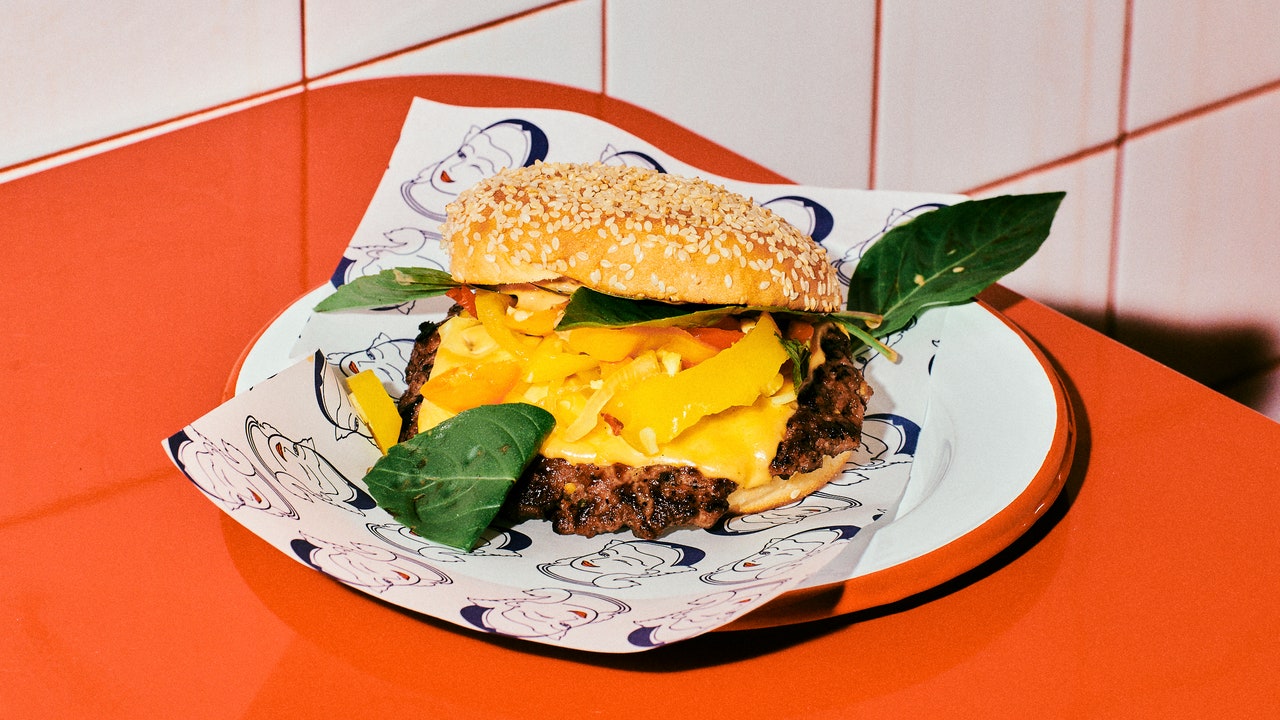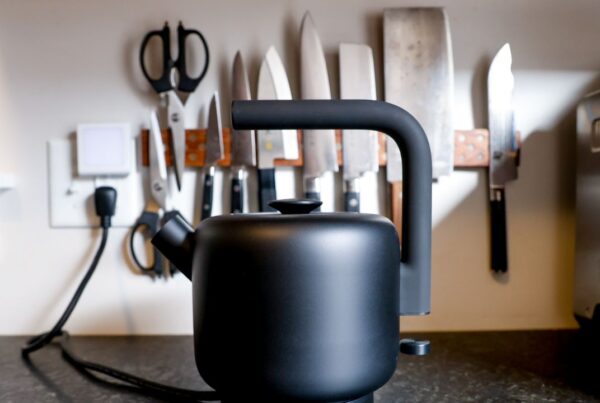In 2019, the chef Jae Lee had an idea. What if he could make a smash burger—an iconic fast food dish featuring a smashed patty, American cheese, pickles, and a burger sauce—even better? He started to tinker with a kimchi-based burger sauce, and a seasoning blend for the patty (the recipe for which he holds very close to the chest). He served his first kimchi smash burger at his New York pop-up, and the fanfare was immediate. After Gothamist declared that Lee’s take on the classic was “one of NYC’s greatest burgers,” it became a local obsession. Just a few months later, he opened his first restaurant, Nowon, where he still serves this smash burger to its many fans—clocking in at about 1,200 burgers sold each week.
Over the last five years, smash burgers have become more popular than ever. And a number of chefs across the country are joining Lee in treating smash burgers as a canvas for all sorts of reinterpretation and creativity. For them, updating the smash burger is, in part, an exercise in tapping into nostalgia—both for fast food and the dishes they loved as children. Lee’s kimchi smash burger, for instance, is a take on a Big Mac, which was his favorite burger growing up. Chef Sky Haneul Kim’s bulgogi smash burger, on the menu at Gift Horse in Providence, calls back to her most-loved meal in Korea. “In Korean McDonald’s [back then], they had a bulgogi burger, but they had an option to add an egg,” she says. “That’s how I get it every time I’m there.”
Nowon’s smashburger.Courtesy of Nowon
These chefs are building on the distinctly American culinary tradition of burger patties smashed flat for expediency and flavor. This dish might have been forged on the flat-top grills of lunch counters and diners, but today’s best smash burgers are anything but old-school.
The latest boom is partly driven by the draw of traditional smash burgers. They appear at pop-ups; in vibey, dimly lit dining rooms; on Shake Shack menus across the country; and of course, at the eponymous chain, which has locations in 30 states, as well as in Washington D.C. and Canada. For diners, these slender burgers present a relatively inexpensive option (many cost less than $8), and restaurant owners appreciate that they cook quickly. The thin, crisped burgers make regular appearances on influencer’s feeds, too, thanks to their aesthetic appeal. The oozing cheese, lacy edges, and golden buns are everywhere.
Just as the 2010s saw a rise in chefs remixing and reimagining juicy, classic, decidedly un-smashed burgers, a wave of chefs has found ways to put their spin on the crowd-pleasing smash burger. In San Francisco, the Filipino smash burger at Bundok’s Burgers features zippy longanisa patties sandwiched between two halves of a purple ube bun. Little Grenjai in Brooklyn made headlines with a Thai krapow smash burger, which overflows with chili and oyster sauce, as well as a lemongrass and bird’s eye chili giardiniera. Lore, another New York spot, adds a masala aioli to their smash burger. There is a vodka sauce smash burger, and the Kim Burger, at Kim’s in Minneapolis, which comes on a hotteok bun—a sweet Korean pancake—with savory, tart onion jam.
A platter of krapow burgers at Little Grenjai, overflowing with chili, oyster sauce, lemongrass and bird’s eye chili giardiniera.Photograph by Christian Rodriguez










